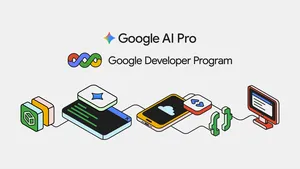Announcing recipients of the Google.org AI Opportunity Fund: Europe

Recent advances in AI, particularly Generative AI, have the potential to increase the size of the EU economy by 1.2 trillion Euros, and to save the average worker over 70 hours a year. But for AI’s promise to be realized, it’s vital that we share resources that will help people across industries understand how to use the technology — especially for people in underserved communities.
In February of this year, Google.org announced the €15 million AI Opportunity Fund: Europe, providing support for the Centre for Public Impact (CPI). CPI then invited nonprofit and civil society organizations that focus on supporting vulnerable communities to apply for cash funding as well as access to extensive and bespoke foundational AI training courses designed by Google and external partners.
We received over 400 applications from 29 countries, which provided interesting insights into not only where AI skills are most needed, but also how nonprofits across the region can best deliver AI skills education. And today, we’re excited to introduce the 80 organizations across 24 countries that collectively will provide AI training to over 20,000 people — women, people with disabilities, migrant workers and displaced people — with the goal of sharing foundational AI knowledge that will lead to positive professional outcomes in the long term.
Below are a handful of the selected organizations:
Viešieji interneto prieigos taškai, Lithuania
Viešieji interneto prieigos taškai will train 400 public librarians, focusing on those aged 45+, so that library staff gain up-to-date digital skills, ensuring public services meet community needs and enhancing digital literacy across Lithuania.
Ares Association, France
Ares Association will help 200 job-seekers from underserved groups across France, including refugees, individuals with disabilities, youth, and older people, gain AI skills tailored to their digital and language needs, increasing social and professional integration and improving job prospects.
Asociación Programamos, Spain
Asociación Programamos will train 100 racially minoritized individuals and black migrants in agriculture, tourism, and hospitality in Sevilla, helping learners enhance their job opportunities, supporting transitions to new fields and advancing social and economic inclusion.
Spectrum Intelligence, Netherlands
Spectrum Intelligence will train 100 autistic adults in the Netherlands and Germany to enhance employability and job prospects. The goal is to provide participants with AI skills to increase their confidence, but also to build a more inclusive job market and expand employment opportunities for neurodiverse individuals.
prg.ai, z. s., Czechia
prg.ai, z. s. will train 180 public servants in foundational AI skills to support digital transformation within government and public sector roles. Training will enhance AI literacy, enabling participants to better understand and implement AI solutions that improve service delivery and responsiveness, leading to technology-driven public services.
FIT Fast Track into Information Technology, Ireland
FIT Fast Track into Information Technology will train 400 socially marginalized and disadvantaged individuals - especially women - in rural Ireland on AI skills and tools to help them succeed in an AI-driven job market and create opportunities for growth in remote communities with limited digital resources and investment.
These nonprofits and all 80 organizations are united by a shared mission to empower vulnerable communities, closing the AI skills gap and ensuring equitable access to the opportunities of tomorrow. We're so excited to see what they achieve.






